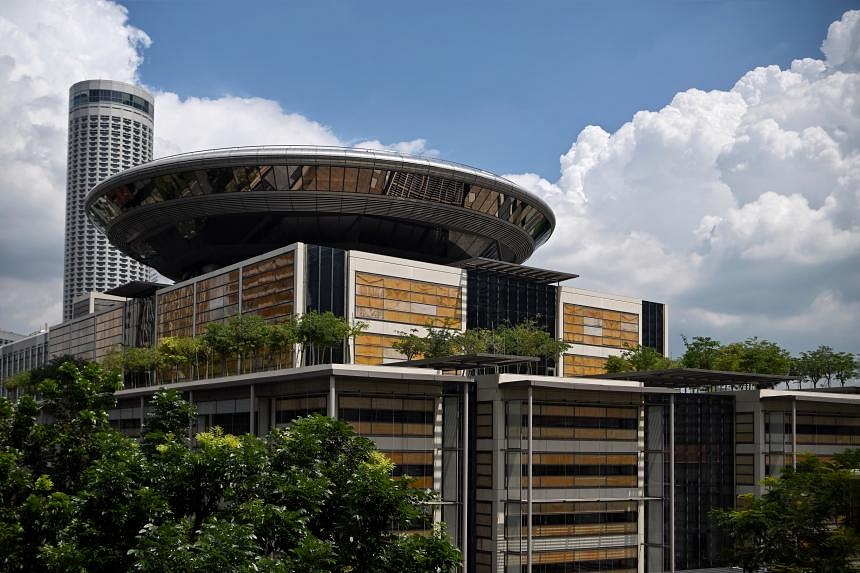SINGAPORE - The Ministry of Law (MinLaw) will adjust the eligibility criteria for legal aid in the light of increases in household incomes and the value of properties recently, said Senior Parliamentary Secretary for Law Rahayu Mahzam on March 1.
The ministry is working towards implementing these changes by the second quarter of 2024, said Ms Rahayu during the debate on her ministry’s budget in Parliament.
MinLaw said the eligibility changes will allow more people to benefit from civil legal aid and criminal defence aid.
Ms Rahayu said the per capita household income threshold for criminal defence aid, which is administered by the Public Defender’s Office (PDO), will be increased from $1,500 to $1,650.
The threshold for civil legal aid administered by the Legal Aid Bureau will be increased from $950 to $1,050.
Ms Rahayu added that the annual residential property value thresholds for both types of aid will also be increased from $13,000 to $21,000, in line with the Ministry of Finance’s revision of the threshold for social assistance schemes. This will cover all Housing Board flats, she said.
The PDO, a department under MinLaw, covers Singapore citizens and permanent residents in the bottom 35 per cent of households in terms of income levels.
Among the requirements, clients must pass a means test to determine if they have limited financial means.
Ms Rahayu said flexibility will continue to be exercised for deserving cases.
She said: “For instance, a means test panel appointed by the minister can consider and recommend for aid to be granted to applicants who cannot afford basic legal services due to extenuating circumstances.”
Public defenders do not cover certain types of offences, including those related to gambling, organised and syndicate crime, and terrorism.
Providing an update on the work of the PDO on March 1, Minister for Law and Home Affairs K. Shanmugam said there were about 1,700 applications as at December 2023, of which almost half were assessed as eligible for criminal defence aid.
During that time, the PDO, which has 16 public defenders, has represented more than 440 accused people in court, Mr Shanmugam added.
He said one of them was a delivery driver, who was charged over his involvement with unlicensed moneylending.
Mr Shanmugam said the man has two young children with special needs whom he takes to childcare and school, and he attends their speech therapy classes and follow-ups at the hospital. His wife is not actively involved in the caregiving.
Requiring money urgently to cover daily living expenses and his children’s therapy sessions, the man borrowed $1,000 from an unlicensed moneylender.
He was then harassed, and his children were threatened.
Mr Shanmugam said the man felt he had no choice but to assist the unlicensed moneylender in his illegal operations. The offender could have expected a sentence of around eight to 12 months’ jail, Mr Shanmugam added.
He said: “This would have meant that his children with special needs would be left without care during (his) prison term.”
The offender was represented by a public defender, who pleaded with the court for a lighter sentence. The lawyer also referred the man to a social service agency to assess the care plan for his children.
Eventually, the court sentenced him to six weeks’ jail and a fine, and agreed to defer his sentence to allow him to ease one of his children’s transition into Primary 1 at a special needs school.
Mr Shanmugam said: “This is one of many examples where the PDO has positively impacted the lives of accused persons.”
He added that the PDO will continue to strengthen its capability and capacity to help more vulnerable people.
Mr Shanmugam said the Legal Aid Bureau, which was set up in 1958, now has around 50 in-house lawyers and support staff, and more than 140 assigned solicitors.
He cited the example of a 101-year-old woman the bureau aided to reclaim her life savings from her daughter.
The centenarian had been put in a nursing home by her daughter, who withdrew money from her mother’s bank account and directed her government financial assistance payouts to her own account.
The daughter claimed her mother had no mental capacity and refused to return the money.
The elderly woman checked herself out of the nursing home, and asked the Legal Aid Bureau for help.
Mr Shanmugam said the bureau helped her to secure a court order for her daughter to return all her money with interest.
Public defender Joseph Lum, 35, told The Straits Times the eligibility changes reflect a keeping up with the times to recognise the overall increase in household income.
Mr Lum, who has been with the PDO since its inception, once represented a man who faced drug-related charges. After writing to the Attorney-General’s Chambers, one of the charges was withdrawn.
This charge had a minimum sentence of 20 years’ jail. The offender, who pleaded guilty, was sentenced to eight years’ jail.
Mr Lum said PDO clients face challenges in navigating the criminal process.
He said: “They are unfamiliar with the system, and they would have challenges presenting their cases in court or mitigating their sentence.”
Mr Lum said some PDO clients are deaf, have an intellectual disability or psychiatric conditions.
He said the lawyers spend more time to understand them and work with caregivers. They also engage sign language interpreters to communicate with them.
He added: “By having representation, it helps to ensure that these vulnerable accused persons are not disadvantaged because of their communication issues with the court.”


